Azure developers are responsible for building, deploying, and managing applications on Microsoft's cloud platform, Azure. They work with a variety of services and tools to create scalable and reliable cloud solutions that meet business needs.
Skills for an Azure developer include proficiency in cloud services, understanding of DevOps practices, and knowledge of programming languages like C# and Python. Additionally, they need to have strong problem-solving abilities and effective communication skills.
Candidates can write these abilities in their resumes, but you can’t verify them without on-the-job Azure Developer skill tests.
In this post, we will explore 8 essential Azure Developer skills, 10 secondary skills and how to assess them so you can make informed hiring decisions.
Table of contents
8 fundamental Azure Developer skills and traits
The best skills for Azure Developers include Azure Services, DevOps Practices, API Management, Security Compliance, Data Storage Options, Scalability Solutions, Monitoring Tools and Serverless Architectures.
Let’s dive into the details by examining the 8 essential skills of a Azure Developer.
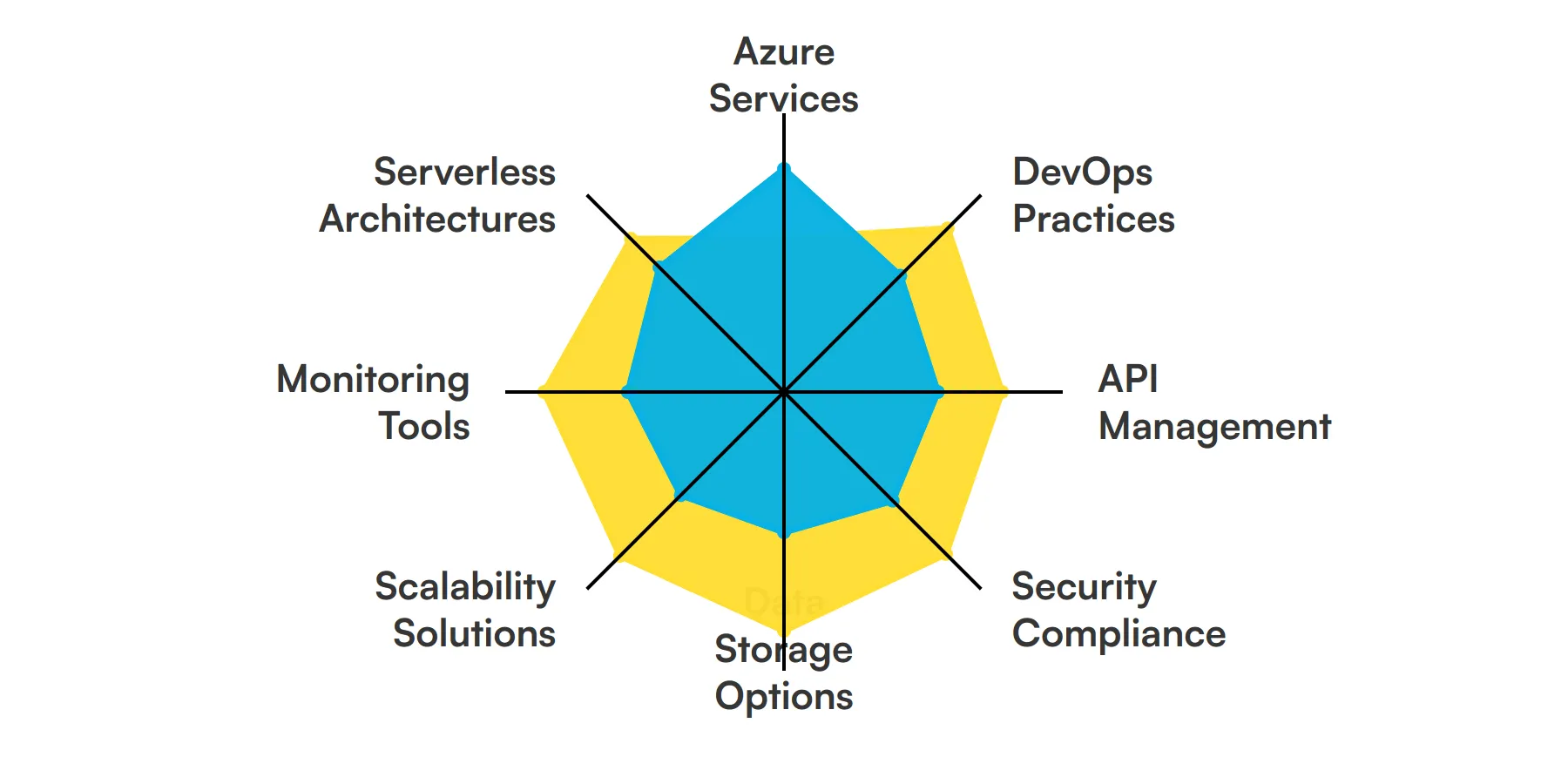
Azure Services
An Azure Developer must be proficient in various Azure services like Azure Functions, Azure SQL Database, and Azure Active Directory. These services enable developers to build, deploy, and manage applications seamlessly on the cloud, ensuring scalability and security.
For more insights, check out our guide to writing a Azure Developer Job Description.
DevOps Practices
Implementing DevOps practices is key for an Azure Developer, involving continuous integration and continuous deployment (CI/CD) pipelines using Azure DevOps. This skill ensures faster deployment cycles and a robust feedback system for ongoing improvement.
API Management
Understanding and implementing Azure API Management is crucial for developers to publish, manage, secure, and analyze APIs effectively. This skill helps in creating scalable and secure API gateways for applications.
Security Compliance
Azure Developers need to ensure applications comply with security standards and regulations. Knowledge of Azure security tools and features helps in protecting data and maintaining privacy, crucial for trust and legal compliance.
Check out our guide for a comprehensive list of interview questions.
Data Storage Options
Selecting the appropriate Azure data storage solution (like Blob Storage, Table Storage, or Cosmos DB) is essential for optimizing performance and cost. The Azure Developer must choose the best storage option based on the data type and access patterns.
Scalability Solutions
An Azure Developer must design solutions that can scale effectively to handle varying loads. Mastery of Azure's scalability features, such as Load Balancers and VM Scale Sets, is necessary to ensure reliable application performance under any load.
Monitoring Tools
Proficiency in Azure monitoring tools like Azure Monitor and Application Insights is necessary for tracking the performance and health of applications. This enables Azure Developers to quickly diagnose and resolve issues.
Serverless Architectures
Understanding serverless architectures using Azure Functions allows developers to build more efficient applications by abstracting server management and focusing on code. This leads to cost savings and simplified scalability.
10 secondary Azure Developer skills and traits
The best skills for Azure Developers include PowerShell Scripting, Networking Fundamentals, Identity Services, Cost Management, Containerization, Hybrid Environments, Machine Learning, IoT Solutions, Mobile Services and Data Migration.
Let’s dive into the details by examining the 10 secondary skills of a Azure Developer.
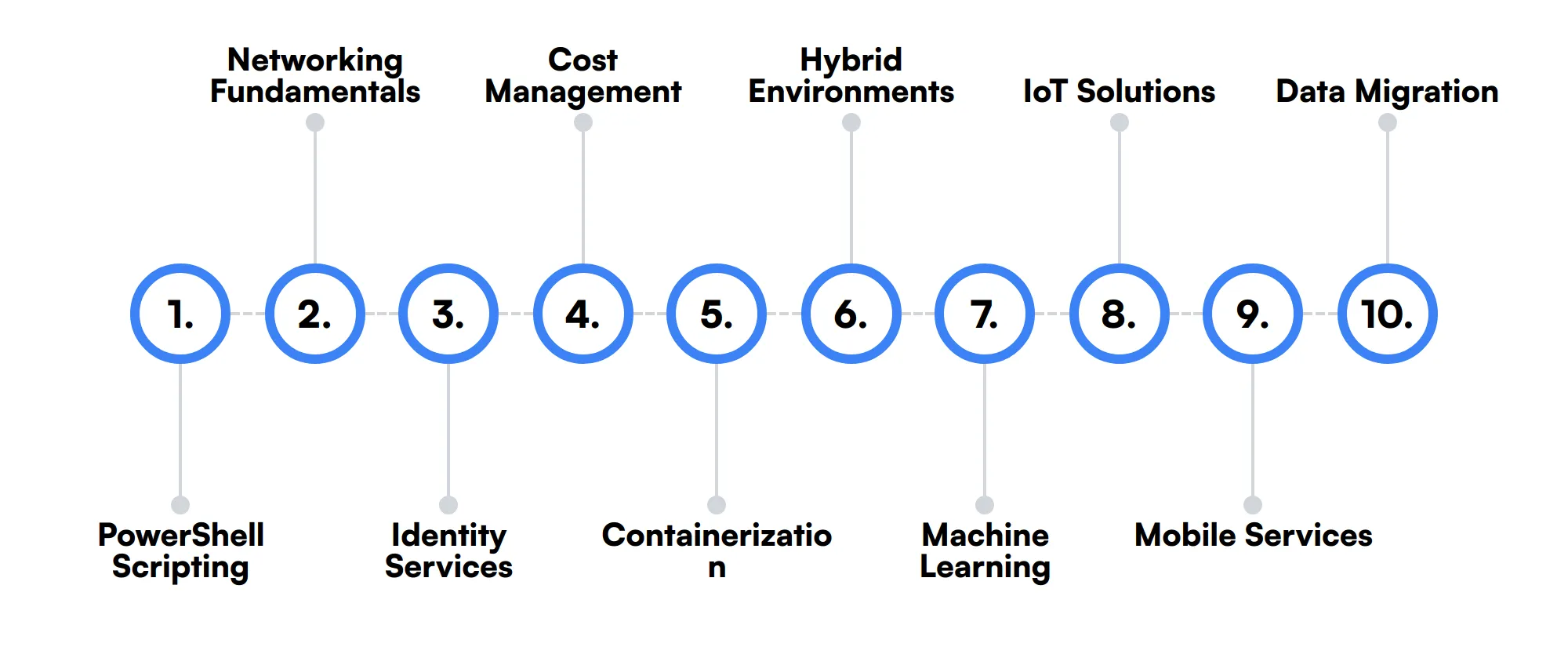
PowerShell Scripting
Knowledge of scripting in PowerShell helps in automating deployment and managing Azure resources more effectively.
Networking Fundamentals
A good grasp of networking concepts such as DNS, TCP/IP, and VPN is beneficial for setting up and managing Azure environments.
Identity Services
Experience with identity services like Azure Active Directory and OAuth helps in implementing secure authentication and authorization.
Cost Management
Understanding cost management in Azure ensures that the Azure Developer can optimize resource usage and reduce expenses without sacrificing performance.
Containerization
Skills in containerization technologies like Docker and Kubernetes are useful for deploying and managing containerized applications in Azure.
Hybrid Environments
Ability to integrate on-premises infrastructure with Azure services is important for companies transitioning to the cloud.
Machine Learning
Familiarity with Azure Machine Learning can be an asset when developing applications that require predictive analytics and AI capabilities.
IoT Solutions
Knowledge of Azure IoT Hub and related services enables developers to build and manage Internet of Things applications.
Mobile Services
Experience with Azure Mobile Apps service helps in building mobile-friendly backends for iOS, Android, and Windows apps.
Data Migration
Skills in data migration tools and strategies are necessary for moving existing databases to Azure smoothly and efficiently.
How to assess Azure Developer skills and traits
Assessing the skills and traits of an Azure Developer can be a challenging task, given the wide range of expertise required. From mastering Azure Services and DevOps Practices to understanding API Management and Security Compliance, an Azure Developer must be proficient in various domains. It's not just about knowing the tools; it's about applying them effectively to solve real-world problems.
Traditional resumes and certifications might give you a glimpse of a candidate's background, but they often fall short in revealing their true capabilities. This is where skills-based assessments come into play. By focusing on practical, on-the-job scenarios, you can better gauge a candidate's proficiency in Data Storage Options, Scalability Solutions, Monitoring Tools, and Serverless Architectures.
To streamline this process, consider using Adaface assessments. These tests are designed to provide a 2x improved quality of hires and an 85% reduction in screening time. With Adaface, you can create customized assessments that align perfectly with the specific skills and traits you are looking for in an Azure Developer.
Let’s look at how to assess Azure Developer skills with these 6 talent assessments.
Microsoft Azure Online Test
Microsoft Azure Online Test evaluates a candidate's ability to create and scale virtual machines, storage options, and virtual networks with Azure.
The test assesses their understanding of Azure compute (Virtual machines, App services, Functions), Azure Storage (SQL, Blob, SQL), Azure Networking (Virtual networks, Gateway, NSG), and Azure security.
Successful candidates demonstrate proficiency in managing Azure resources, implementing backup strategies, and configuring network security groups.
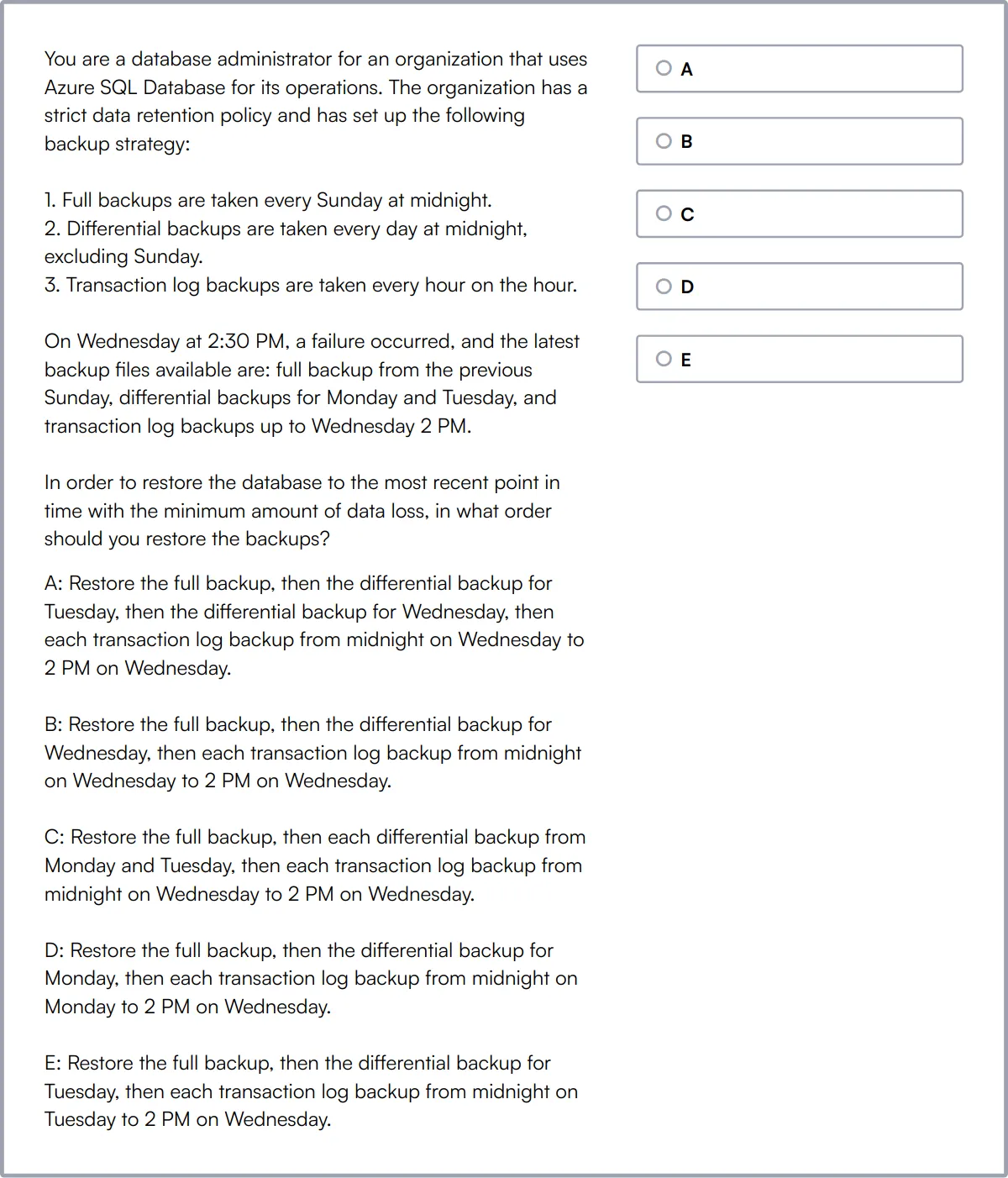
DevOps Test
DevOps Test is designed to assess a candidate's proficiency in working with Linux, Git, Python, Docker, and DevOps skills.
The test evaluates their knowledge of Git basics and workflows, Docker containers and volumes, Linux commands, and Python fundamentals.
High-scoring candidates show strong skills in scripting, file system management, and understanding of DevOps practices.
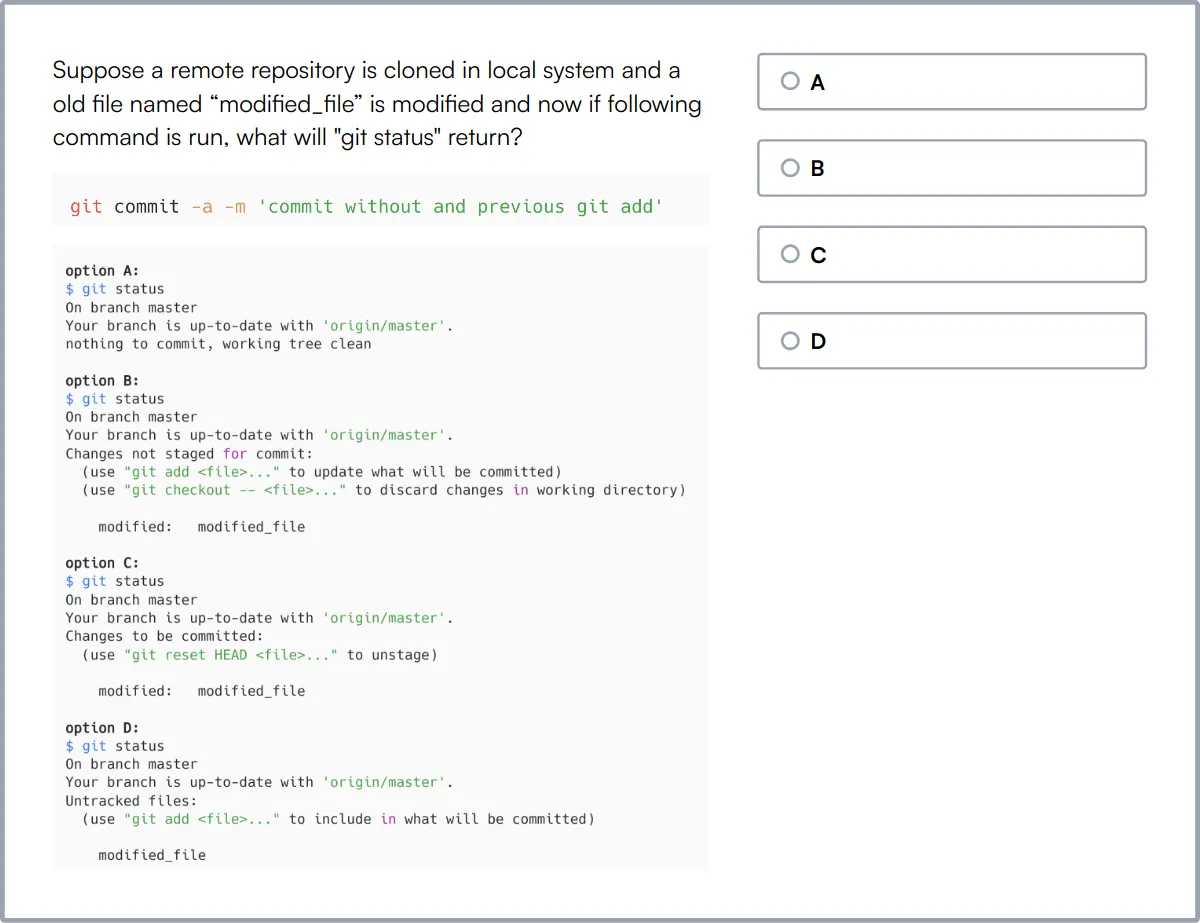
REST API Test
REST API Test evaluates a candidate's understanding of RESTful APIs and their ability to create, interact, and test them.
The test covers REST principles, HTTP methods, status codes, authentication, and serialization formats.
Candidates who perform well demonstrate strong skills in API design, best practices, and backend service development.
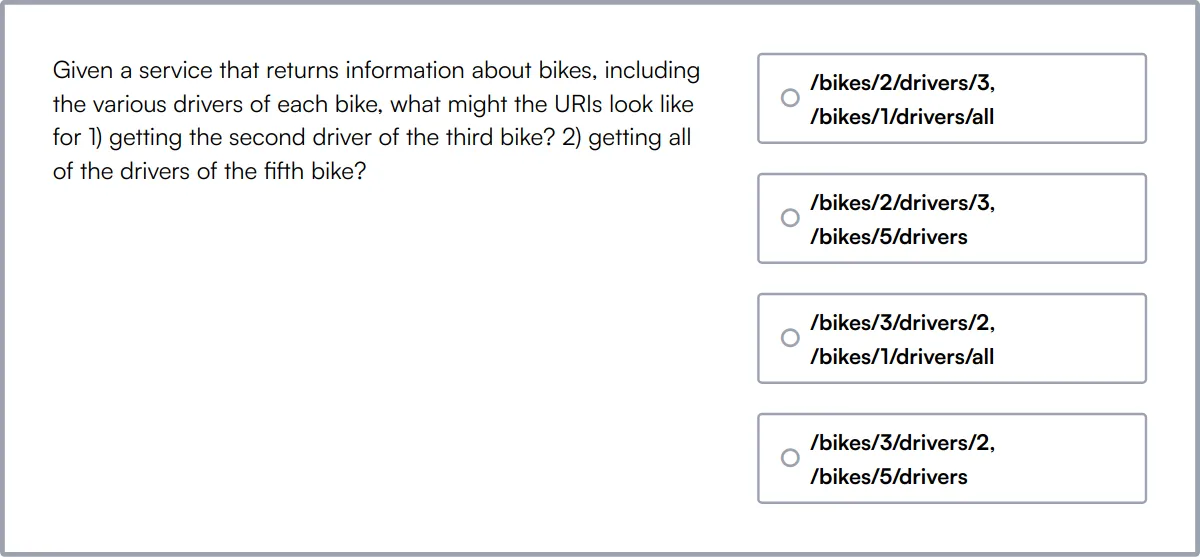
GDPR Online Test
GDPR Online Test evaluates candidates on their understanding of GDPR regulations and best practices for data protection and privacy.
The test assesses their ability to identify and evaluate data protection risks, develop and implement GDPR compliance policies, and ensure the security and privacy of personal data.
Successful candidates show a strong grasp of data privacy, data breach management, and consent management.
SQL Server Online Test
SQL Server Online Test evaluates candidates on their knowledge of SQL Server, including their proficiency in writing complex SQL queries and administering SQL Server instances.
The test covers SQL Server security, performance optimization, and disaster recovery.
Candidates who score well demonstrate strong skills in database monitoring, maintenance, and troubleshooting.
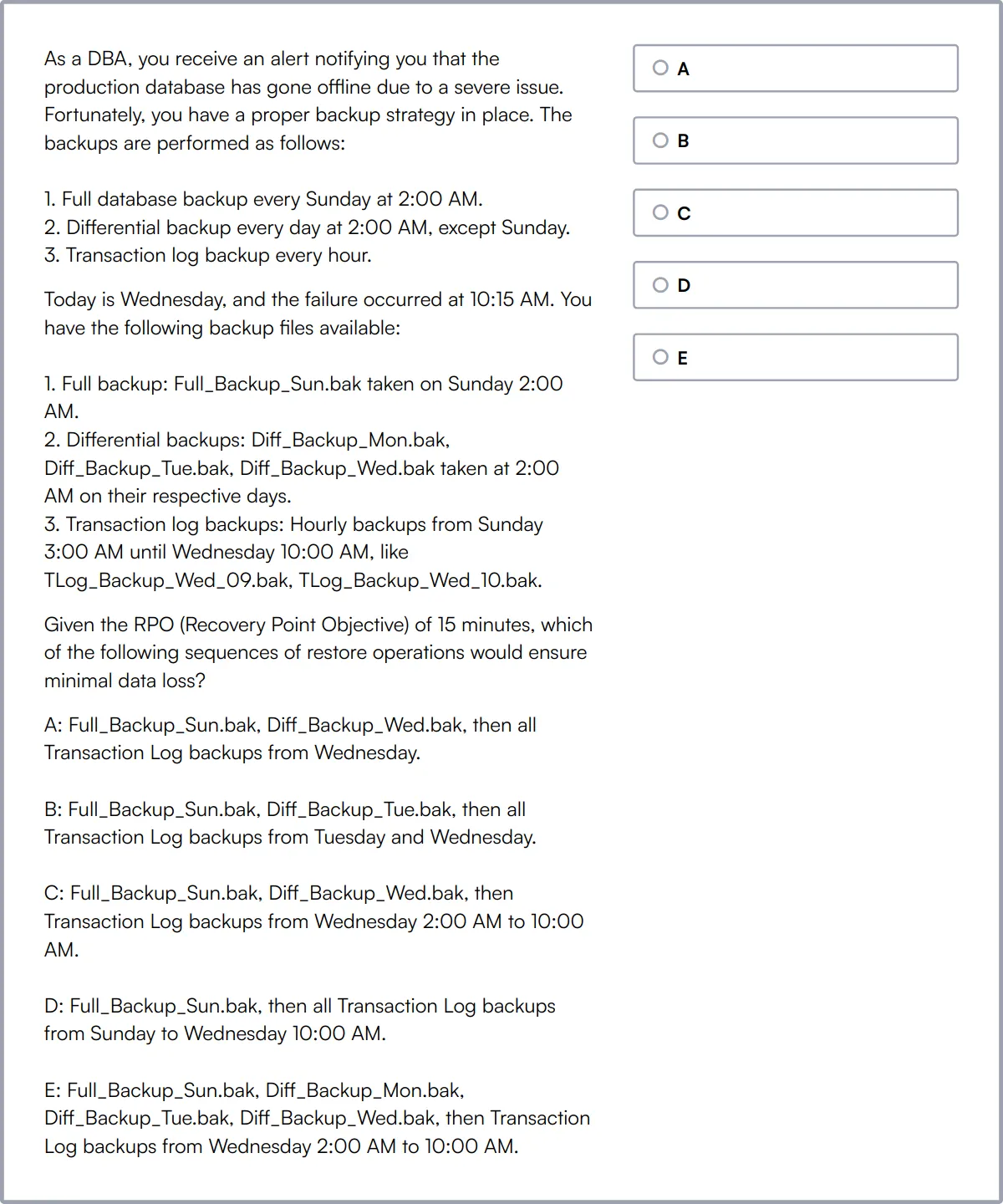
Azure DevOps Test
Azure DevOps Test assesses a candidate's proficiency in working with Azure and implementing DevOps best practices.
The test evaluates their understanding of cloud computing, infrastructure as code, continuous integration and delivery, and configuration management.
High-scoring candidates show strong skills in containerization, monitoring, and logging within Azure environments.
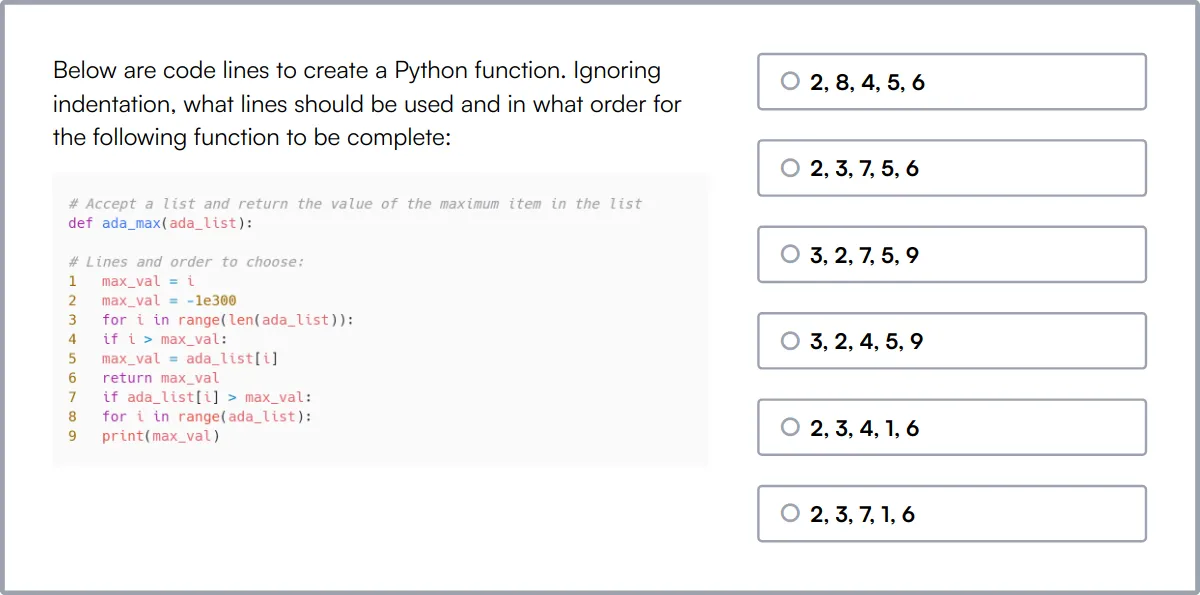
Summary: The 8 key Azure Developer skills and how to test for them
| Azure Developer skill | How to assess them |
|---|---|
| 1. Azure Services | Evaluate knowledge of core Azure offerings and their practical applications. |
| 2. DevOps Practices | Assess ability to implement CI/CD pipelines and automate deployments. |
| 3. API Management | Check skills in designing, deploying, and managing APIs. |
| 4. Security Compliance | Gauge understanding of Azure security protocols and compliance standards. |
| 5. Data Storage Options | Measure proficiency in selecting and managing Azure storage solutions. |
| 6. Scalability Solutions | Evaluate capability to design scalable and resilient architectures. |
| 7. Monitoring Tools | Assess use of Azure Monitor and other monitoring solutions. |
| 8. Serverless Architectures | Check experience with Azure Functions and other serverless services. |
Azure DevOps Test
Azure Developer skills FAQs
What are the key Azure Services skills required for an Azure Developer?
Azure Developers should be proficient in various Azure services such as Azure Functions, Azure Logic Apps, and Azure Kubernetes Service (AKS). Understanding how to integrate these services effectively is important for building scalable applications.
How can recruiters assess a candidate's expertise in DevOps practices for Azure?
Recruiters can evaluate a candidate's DevOps skills by discussing their experience with CI/CD pipelines, automation tools, and their familiarity with Azure DevOps services. Practical assessments or case studies can also provide insight into their hands-on abilities.
What should Azure Developers know about API Management?
Azure Developers need to understand how to use Azure API Management to create, publish, maintain, monitor, and secure APIs. Knowledge of policies, authentication, and caching mechanisms is also important.
Why is Security Compliance important for Azure Developers?
Security compliance is critical as it ensures that applications meet legal and regulatory standards. Azure Developers should be familiar with Azure security tools and best practices to protect data and manage access.
What are some effective ways to assess knowledge of Data Storage Options in Azure?
To assess knowledge in Azure Data Storage options, recruiters can ask candidates to describe different storage types like Blob, File, Queue, and Table storage. Discussing scenarios where each type is appropriate can reveal depth of understanding.
How important is understanding Scalability Solutions for an Azure Developer?
Understanding scalability solutions is key for developers to ensure applications can handle varying loads. Knowledge of Azure Scale Sets and Auto-scaling configurations is important for optimizing performance and cost.
What should a recruiter look for in a candidate's experience with Monitoring Tools in Azure?
Recruiters should look for familiarity with Azure Monitor and Application Insights. Candidates should demonstrate how they use these tools to track performance, diagnose issues, and ensure system health.
How can knowledge of Serverless Architectures be assessed during an interview?
During an interview, discussing previous projects involving Azure Functions or Logic Apps can help assess a candidate's understanding of serverless architectures. Questions about triggers, bindings, and execution flows can also be insightful.
Assess and hire the best Azure Developers with Adaface
Assessing and finding the best Azure Developer is quick and easy when you use talent assessments. You can check out our product tour, sign up for our free plan to see talent assessments in action or view the demo here:

40 min skill tests.
No trick questions.
Accurate shortlisting.
We make it easy for you to find the best candidates in your pipeline with a 40 min skills test.
Try for freeRelated posts
Free resources



